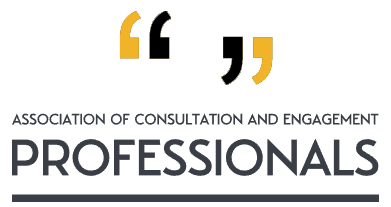We tend to think participation is “the act of taking part in, or sharing in something”. The term is one which implies an active rather than a passive process – so perhaps it should be triggered from the bottom up as well as top-down. Empowering communities to demand consultation and engagement is not as radical as it sounds.
In Scotland, “participation requests” are a way for community groups and organisations to have their voices heard in the planning and delivery of services. The right to make a participation request to a public body was introduced as part of the Community Empowerment (Scotland) Act, and came into effect on the 1st April 2017. The spirit of the Act is about developing more equal relationships and dialogue.
The Scottish Government are currently reviewing the Community Empowerment Act, to explore if the legislation is doing what it set out to do and if any changes are required. The review will have a particular focus on community ownership and strengthening decision-making to improve outcomes for the local community. The review should finish in the second half of 2023 and is expected to include the introduction of an appeals mechanism for participation requests – for where a request has been refused.
The existing Act states that a “community participation body” may make a request to a public service authority to permit the body to participate in an outcome improvement process. The Act goes on to further define what “community participation bodies” are and what “public service authorities” are (these include health and fire boards) as well as describing what an outcome improvement process is.
There are a range of possible uses of participation requests which can be broadly divided into four categories as follows: –
- To help people start a dialogue about something that matters to their community, through highlighting needs, issues or opportunities for improvement;
- To help people have their voice heard in policy and service development, through contributing to decision-making processes;
- To help people to participate in the design, delivery, monitoring or review of service provision, through contributing to service change or improvement;
- To help people challenge decisions and seek support for alternatives which improve outcomes.
A participation request must be submitted in a particular format – in writing or by electronic means (email, online form etc). In addition to stating the outcome the community participation body wants to improve they must also: –
- Set out the reasons why the community participation body believes it should participate in an outcome improvement process;
- Provide details of any knowledge, expertise, and experience the community participation body has in relation to the outcome;
- State how the outcome will be improved because of the involvement of the community participation body.
Public authorities have various responsibilities too. For example, they must actively promote participation requests and should provide information on what they can be used for. Particular effort should be made to promote participation requests with more marginalised and disadvantaged communities, who may be less likely to know about and take advantage of such opportunities.
The public service authority must agree to the request and set up an outcome improvement process unless there are reasonable grounds for refusal. If it refuses the request, it must explain the reasons. How the outcome improvement process will work and how long it should take is discussed between the community participation body and the public service authority. At the end of the process the public service authority must publish a report on summarising the process, whether the outcomes were improved and how the community body contributed to that improvement. Each public service authority must publish a report each year setting out the various performance metrics of requests.
So why aren’t participation requests a feature of English or Welsh democracies?
Firstly, they haven’t been overly popular. According to available public service authority annual reports, between 2017 and 2019 public service authorities received 46 participation requests. Of these, 27 were accepted and 14 were refused. Some public service authorities struggled to see the added value in the introduction of participation requests, arguing that the underlying principles of participation requests were already embedded throughout their working practice. Some defined participation requests as ‘prescriptive legislation’, viewing submitted participation requests as representative of a failure in existing systems, approaches and processes designed to enable dialogue.
Negative experiences included participation requests being lost or passed around different council departments. One community body told us about a request seemingly disappearing down a “black hole” for nine months.
However, a positive finding has been that some community organisations who have had their participation request agreed-to has given their work more impetus and a higher profile. In this sense, participation requests may be seen as one ‘piece of the puzzle’ for improving an outcome.
Given that there have been so many examples of decisions taken within a void of participation, particularly on environmental and economic issues, our gut feeling is that the “participation request” is now ripe. We’ve seen how popular petitions became once they went digital and once local authorities adopted a proper petition scheme. Somebody needs to make an online facility for these requests so they can be handled in a transparent manner and to improve our common understanding of their efficacy.
We think there is room for this instrument in English and Welsh democracy toolkits. However, there’s no need to legislate – just do it!

